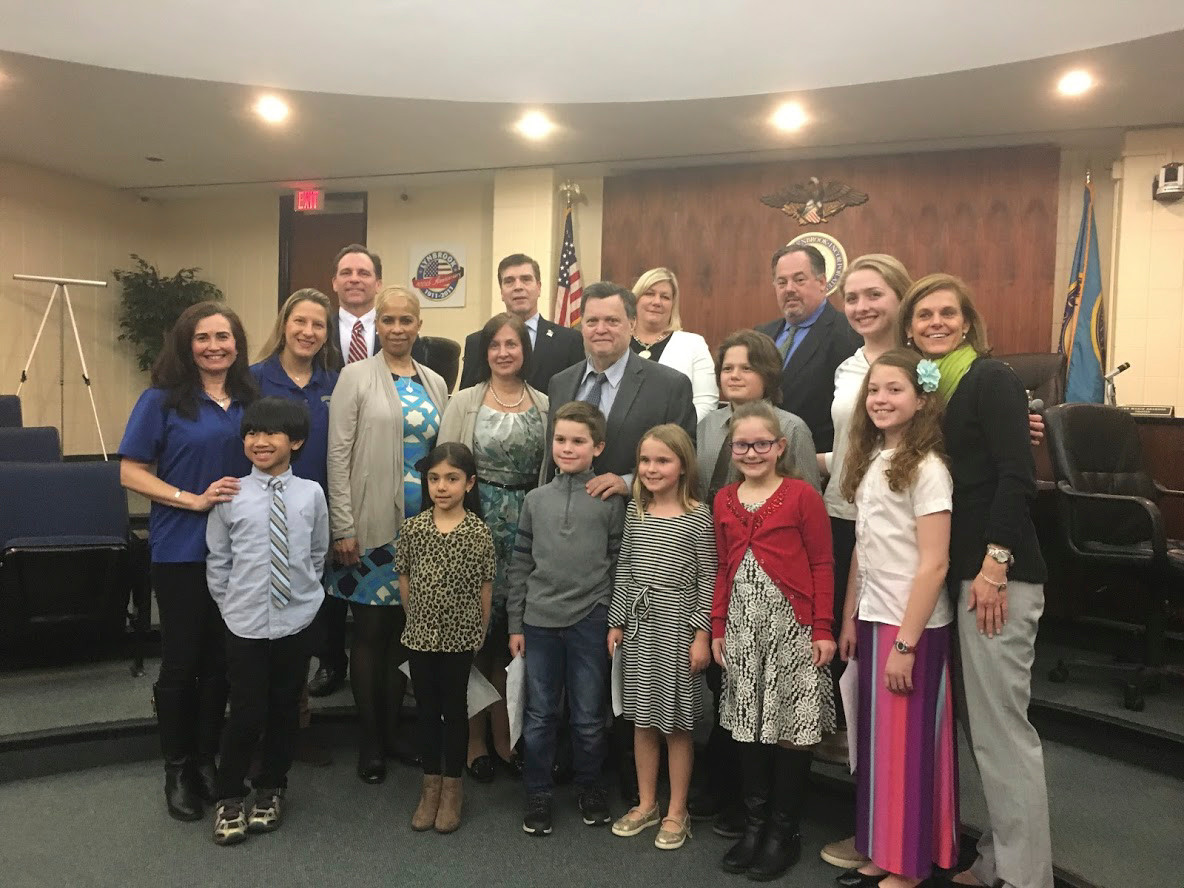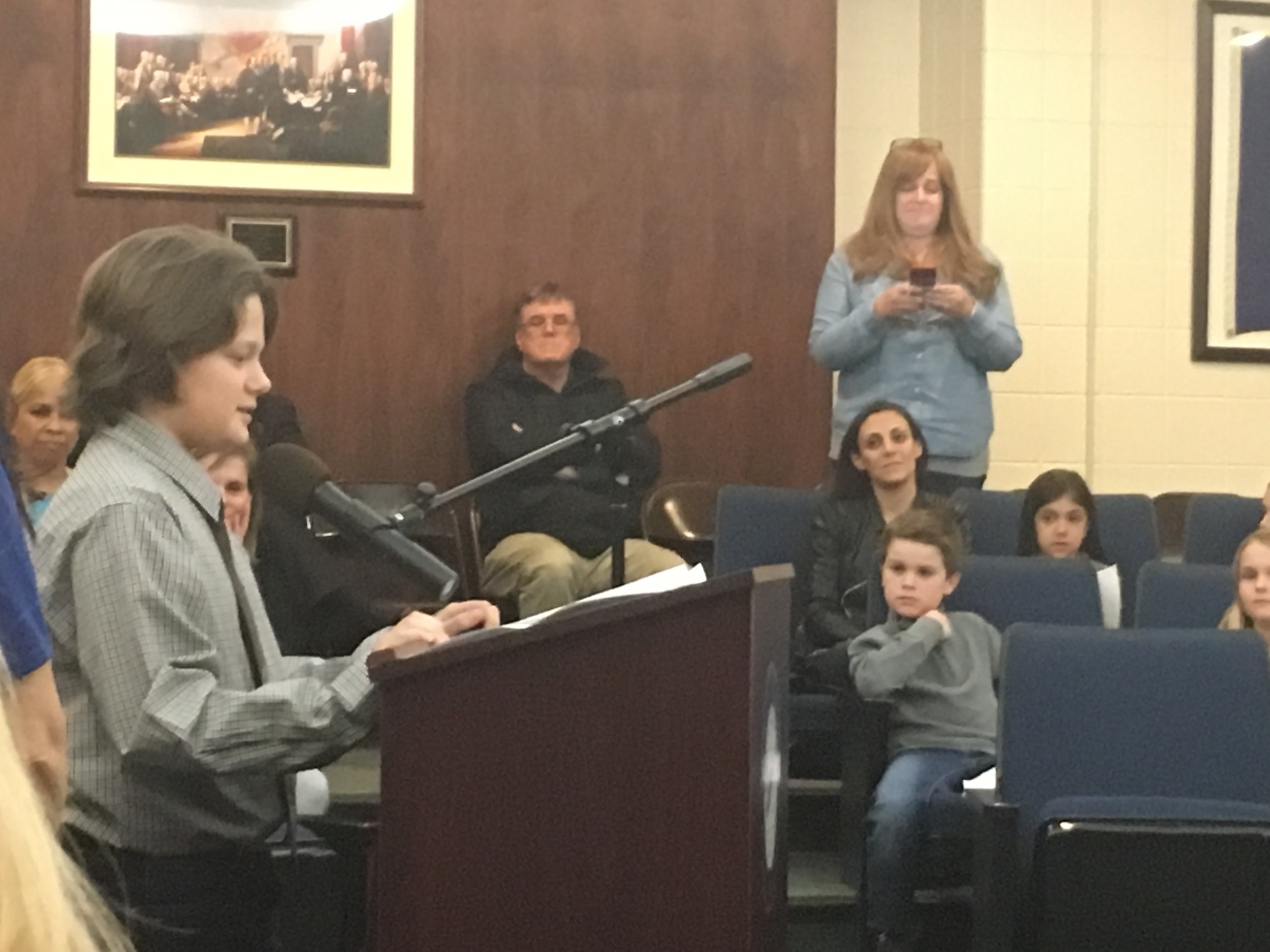Lynbrook students petition village to tax plastic bags

“I love animals and do not want them to die,” Sophia Romanelli, a second-grader at Marion Street Elementary School, told the Lynbrook board of trustees at their April 3 meeting. “If we stop using plastic, it will make our Earth look clean and save the animals.”
Romanelli was one of eight Lynbrook Union Free School District students to read letters to the board encouraging them to tax plastic bags in the village. These letters described the damage that plastic bags can do to animals, to the environment and to humans who eat fish that have ingested plastic. The students learned about these dangers in their classes because Anne Conway, a second grade teacher at Marion Street, wanted to incorporate the district’s writing project with a lesson on civic responsibility.
“When you want to teach children about civic responsibility, you teach them about things that are important with their community,” Conway said. “One of the things people have been talking about have been the plastic bags in our community.”
Conway said she told other teachers in the district about her idea, and they all incorporated the plastic bag initiative into their lesson plans. Kindergarteners designed logos for reusable canvas bags that the district is selling for $6 each, and the high school students wrote petitions. “Lynbrook has always been a big family, we’re not just separate buildings,” Conway said.
This was not the first time that the students were activists for their environment. Last year, after Conway’s students watched a video about a whale that suffered from a stomach blockage after it swallowed plastic debris, the students cleaned out the storm drains near the school to ensure that plastic would not wind up back in the ocean. Some students even went home and cleaned out drains near their houses with their parents.
“When you teach kids nature, the kids really understand their connection with it,” Conway said. “So when we talk to students about plastic bags, they’ll tell you about the plastic bags stuck in the trees or the birds’ nest made out of plastic.”
Their letters encouraged Hendrick to consider enacting legislation that would tax plastic bags, similar to the legislation that is going into effect on April 22 in Long Beach. At the meeting, Hendrick instructed Village attorney Peter Ledwith to research the law and advise the board about possible legal action. “After that happens, we will decide if we want to pass a law, then we’ll have a public hearing,” Hendrick said. “All of these kids are going to come back and speak at the public hearing.”
Steve Wangel, the vice president of Lynbrook’s chamber of commerce, said that the chamber would work with the students to implement a surcharge on plastic bags. “We look forward to working with the school district and the village board on helping to get the implementation done,” he said at the meeting.
If the students’ hard work does enact a change in the law, Conway said it would be the “icing on the cake for them.” She added that it would “let them know that when you speak up, your government hears you and listens and cares what you have to say.”
But Conway said she already accomplished what she wanted to with this project. “The students all got a chance to get their voices heard,” she said. “That was really the goal.”

 63.0°,
A Few Clouds and Breezy
63.0°,
A Few Clouds and Breezy 




